Hand-Weaving Techniques: Design Textile Accessories
Course final project
A course by Cassandra Sabo , Textile Designer and Hand Weaver
About the final project for: Hand-Weaving Techniques: Design Textile Accessories
Hand-Weaving Techniques: Design Textile Accessories
“Well done! You have now reached the end of my course. Thank you for taking part! Before we say goodbye, I'd like to give a brief overview of the content to guide you in your project: a woven cushion.
- First, consider the themes and influences that you'd like to integrate into your design. Then, allow this to inform the colours that you choose. I recommend using the resources I shared in Unit 4 to harmonise your colour combinations. Collect your ideas together and create a mood board. Make sure that your project is unique to you. Then, make your sketches and technical notes. Create some visual references to guide you through the weaving process.
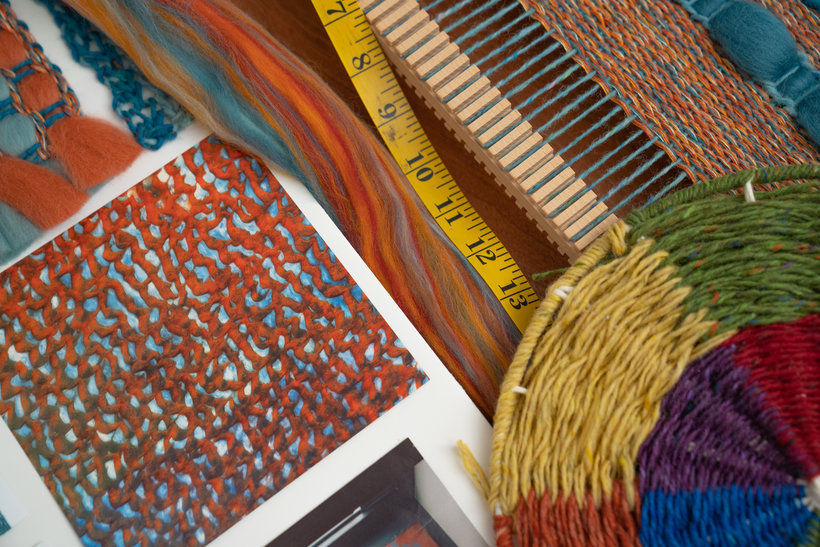
- Next, choose your frame loom, weaving tools, accessories, and set up your workspace to be comfortable and productive. Prepare all the yarns you will be using by winding them into balls or cakes or setting your cones within reach to wind onto your shuttle. You might want to note down the start weights of each yarn to know how much yarn you are using in your cushion. Then, you can add this information to your technical notes.
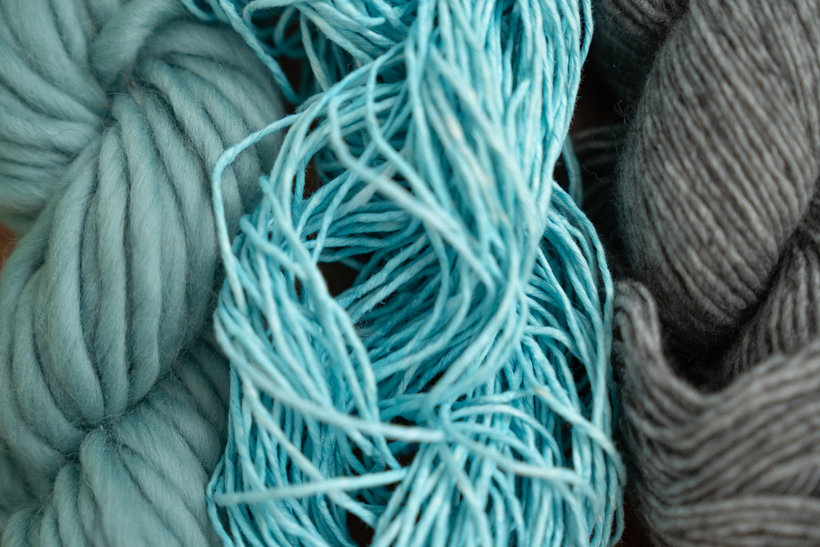
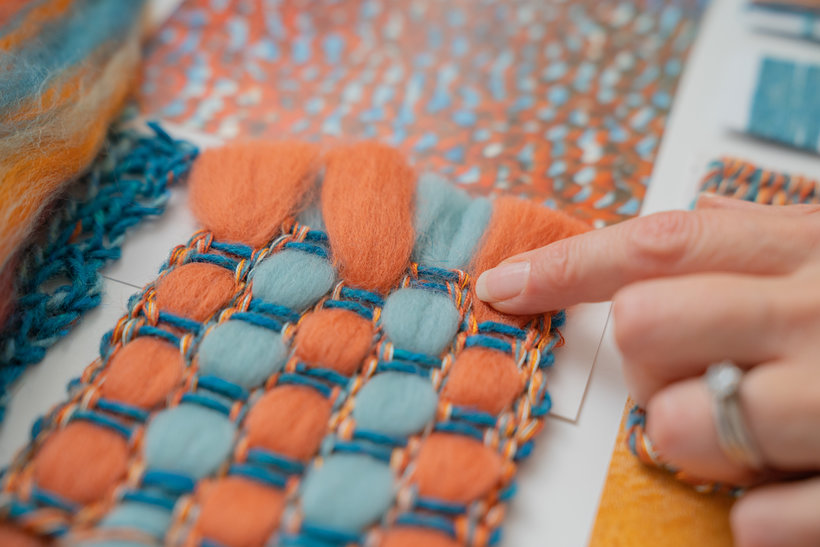

- Referring to your sketches, technical notes, and your small woven sample, start weaving your cushion according to your design. Remember to set up your warp guides to avoid pulling in your edges. When the front panel is complete, remove it from the loom using the technique I shared and set it aside. Weave the two back panels and remove them from the loom too.
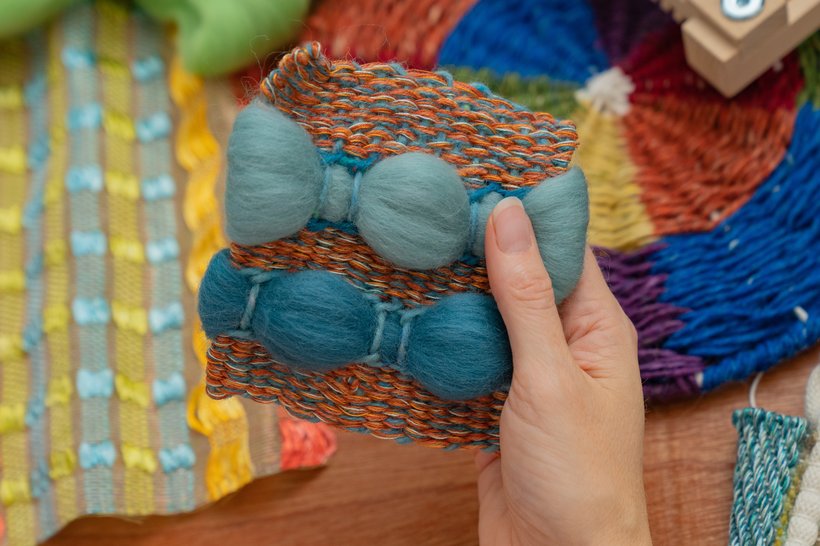
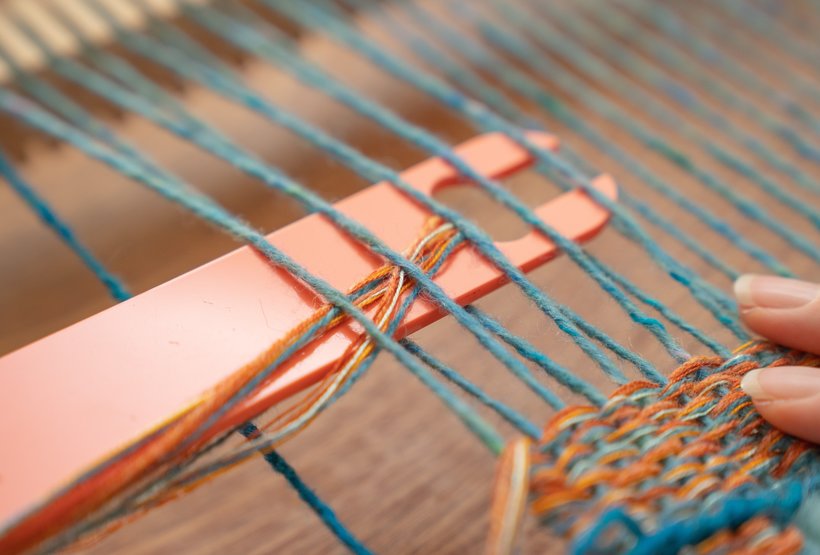
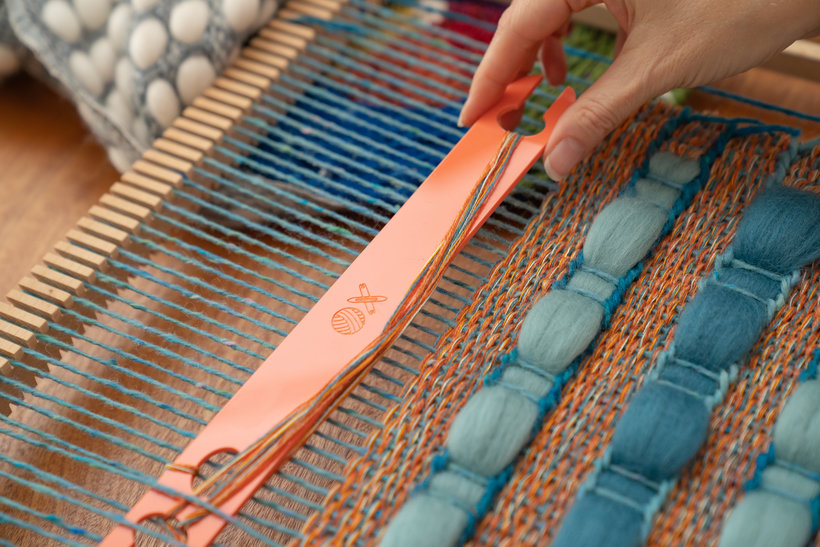
- Once woven, match your front panel with the two back panels and secure together with pins or sewing clips. Using your chosen yarn, sew together the three panels.
- With your cushion complete, wash it in warm water, rinse, and dry. Do this by first wrapping it in a towel to absorb excess water. Then, lay it flat to air dry. Use a steam iron to remove fuzzy ends and freshen if needed.
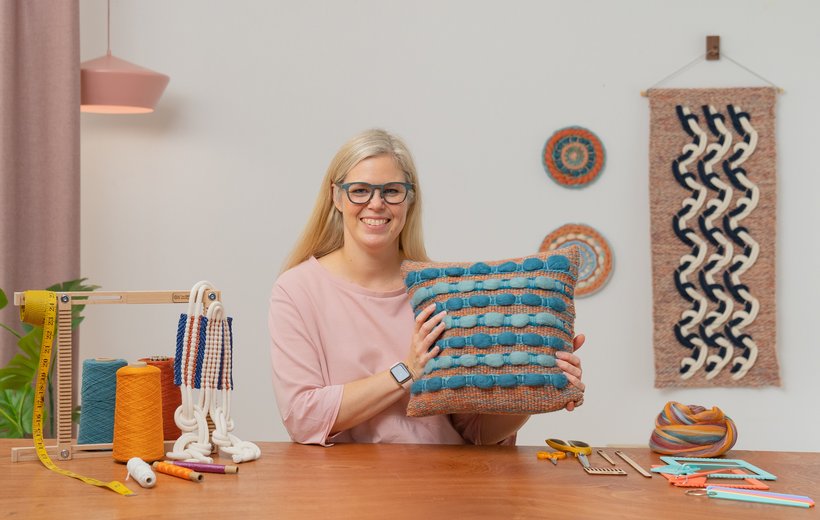
Partial transcription of the video
“Thanks so much for following along with me. there was quite a lot of information to take on board So if you've made it this far, you're doing really well. you may have learned many new techniques and processes along the way. But if you're finding that you're overwhelmed at any point, Don't worry. Just pick one or two of those processes. and focus on them. So now it's time for you to weave your final cushion design. So I really want to encourage you to think about your own background, skills, and knowledge and weave something unique to you. If you already have a loom or you're thinking of bu...”
This transcript is automatically generated, so it may contain mistakes.
Course summary for: Hand-Weaving Techniques: Design Textile Accessories
-
Category
Craft -
Areas
Accessory Design, Arts & Crafts, Decoration, Embroidery, Fiber Arts, Textile Design, Weaving

Cassandra Sabo
A course by Cassandra Sabo
Cassandra Sabo is a textile designer and weaver from Montreal, Canada. She initially moved to London to pursue a degree in textile design at Central Saint Martins, and eventually moved to Oxford with her husband and children, and founded The Oxford Weaving Studio.
From her studio, she shares her love and knowledge of weaving and the broader fiber arts with her community. Cassandra also researched, designed and developed The Oxford Frame Loom, a new type of frame loom that aims to bridge the gap between hand-weaving and tapestry weaving, enabling weavers of all levels to discover and explore this craft in new ways.
- 100% positive reviews (69)
- 2,390 students
- 24 lessons (5h 29m)
- 24 additional resources (12 files)
- Online and at your own pace
- Available on the app
- Audio: English, Spanish, French, Italian, Portuguese, Turkish
- English · Spanish · Portuguese · German · French · Italian · Polish · Dutch · Turkish
- Level: Beginner
- Unlimited access forever
Category
Areas


